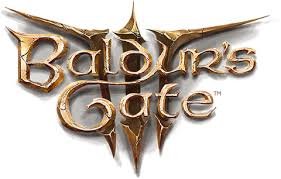Why are games not selling well?
I’ve gotten asked a few times recently why games are not doing as well right now? Or why is it even harder to land a success with gamers? The short answer is, because your customer has changed. Not in terms of demographics, but in behaviour.
I have a hypothesis that sees 3 primary factors driving why games are having a harder time to be well received with players.
Origin of behavioural change
The pandemic hangover
While the gaming industry certainly profited from the Covid-19 pandemic, I believe it overlooked the subsequent change in the consumer’s behaviour:
We’ve had time to make our way through the steam library backlog. We bought and played more games than we did before, simply because we had the time. However, this created a much more informed consumer.
This much higher exposure of a much greater variety of games means that the threshold of even ‘just’ meeting expectations has risen.
When you think of recent examples that did meet and exceed the expectations of players, and subsequently were hit titles, the list is not very long. Baldur’s Gate 3 comes to mind. A full priced 50£ game, which at the time of writing sits at well over half a million reviews on Steam with an “Overwhelmingly Positive” rating.
This monster of a game, even sparked concerns among other developers over the game’s scope setting a new standard for the genre. But for the much more informed player, this is what it took to exceed expectations, and land it as a big success.We all spend time during the pandemic to re-assess. As the pandemic started to draw to a slow end, we saw this in what is titled The Great Resignation.
I do however believe that this reassessment is not limited to work. We reshuffled our priorities of what is worth our time not just in the context of work, but in general. Naturally this extends to our consumption of entertainment. What we choose to spend money on and invest time in, is now under a much higher scrutiny compared to before.
This is not limited to games, but entertainment in general. Netflix series, movies, all are seeing a much higher level of scrutiny. To land a success in games, movies, or entertainment in general, too requires something rather more extraordinary compared to before. We are much less likely to accept and invest time and money into “meh, was alright” level of entertainment.
Did it to ourselves
We, as an industry, have created quite a bit of scepticism when it comes making promises, and promoting our products. The idea of “overselling” comes to mind a little, where we overinflate detailed adjustment and changes, edit and polish our trailers, add extra bits, make them ever so flashy as we possibly can, only for the player to find out that as soon as they actually enter the game, it doesn’t really look or feel like the marketing materials made it out to be. It leaves a feeling of being mislead in the player’s mind.
We do not limit it to our consumer but approach it the same way with investors too. We pitch our product to perfection, only for the investor to be left hoping that it can actually be delivered in the promised time (spoiler: it hardly ever is) and is met with acceptance and excitement by the player once it releases.
So we, as an industry, face a player that is rather more sceptical and approaches purchase decision with a “let’s wait and see” mindset. And on the other end, investors that see us as rather high risk to produce returns.
Subscription models like Game Pass
This is a little more anecdotal from an observation of my own behaviour. But since I’ve gotten Game Pass, I have purchased only one full priced game since: Flight Simulator 2024 (I’m a big aviation nerd🛫).
I think I’m not alone in this. Where the consideration looks something like: having access to this huge number of games as part of my monthly subscription, why would I pay 4 or 5 times as much for a single game? Especially in the context of the current economic sentiment.
It does take something rather unique, with long term replay ability, and excitement to make that purchase decision. Or something that I feel is different and genuinely want to support.
How to deal with the behavioural change
Ultimately all these changes are contributing factors that created the current correction of the industry. We are still in the midst of it all, but to be successful today, it takes an even better understanding of the player, and the market as a whole.
On the one side the more we can demonstrate how we fit into the crowded market, make a dent, and acquire a portion of market share with our product, is a rather powerful way for investors to be reassured in this high risk endeavour.
On the other end, the better we can authentically speak and communicate to our players, the more we can remove the scepticism, and reassure our players that we are committed to delivering a game that is worth their time, effort, and money.
Both require a fundamental understanding of the behavioural dynamics taking place today.
I build brands through community, and I believe that it’s the way forward, to create that sense of belonging through authenticity and connection. Only the consistent culture of a brand, can address these fears and concerns that ultimately lead to hesitation of a purchase decision, and commitment to a game.
If you like to learn more about how we do this, and how it could help your brand, you can contact us right here!


